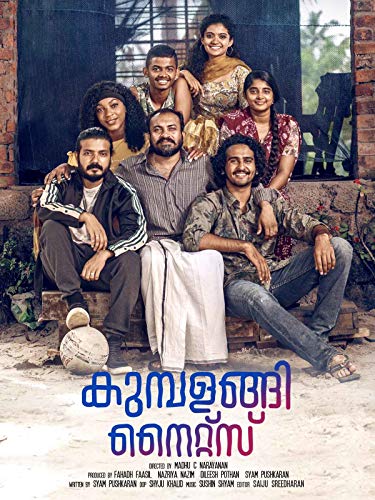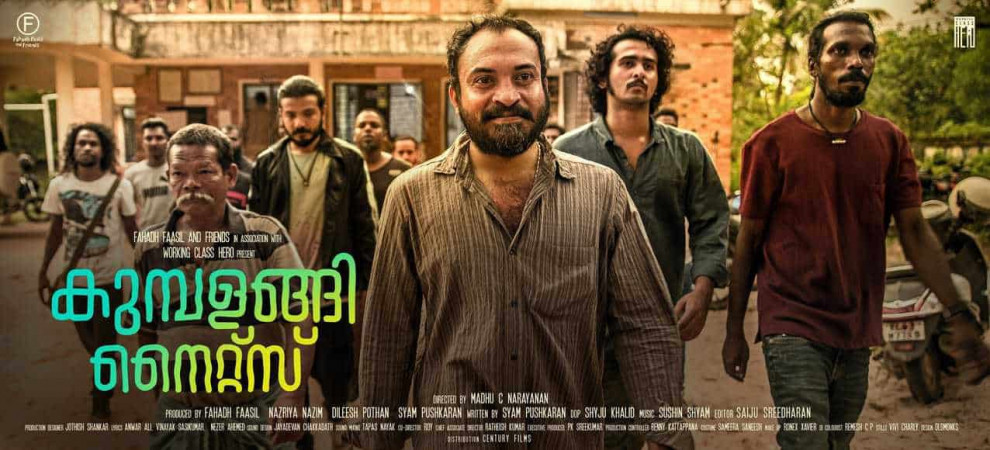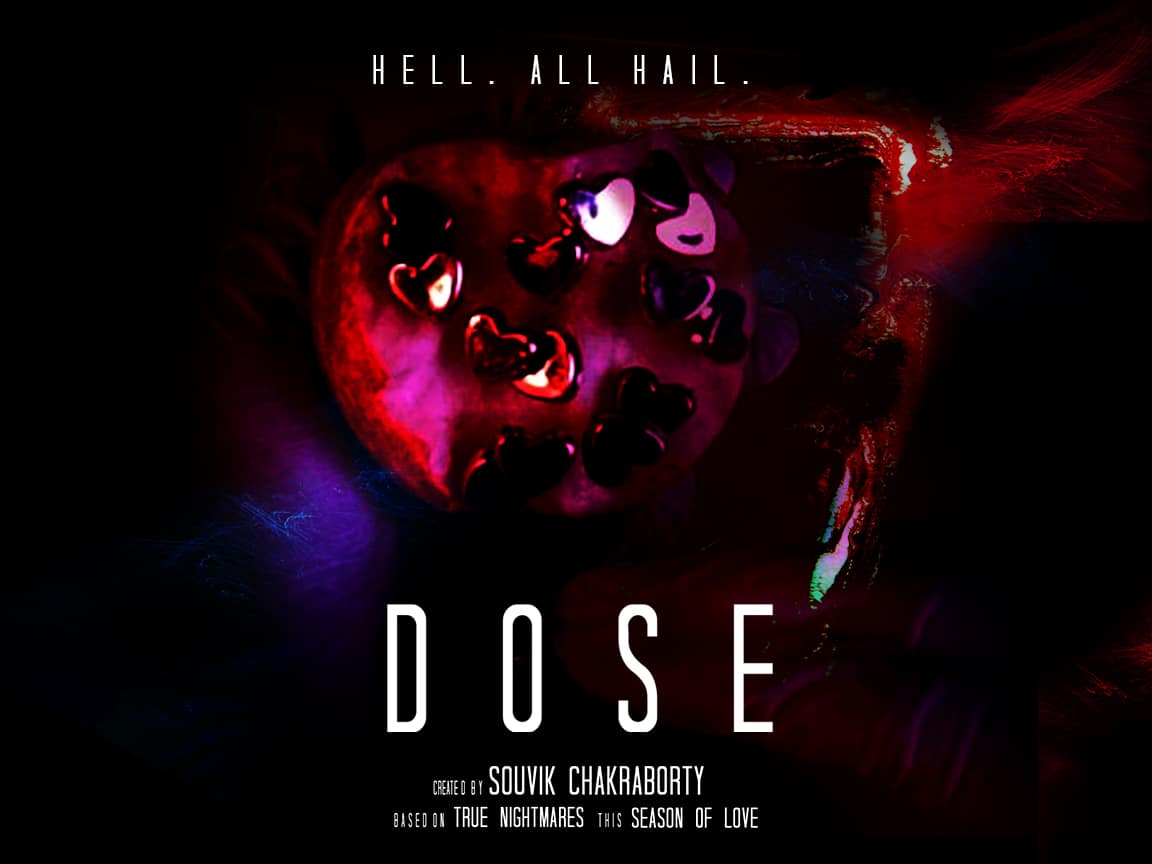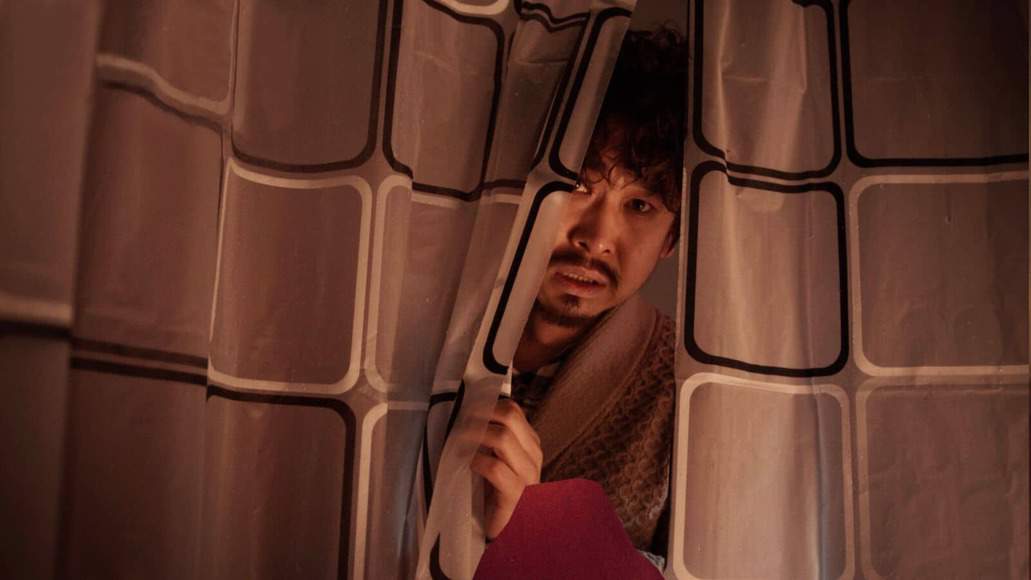“There's a Shammi in every one of us.” This was said by Shyam Pushkaran, the writer of “Kumbalangi Nights” about the villain of the film. Anyone from Kerala or the whole India itself who watches the film will agree on that. “Kumbalangi Nights” shows a villain who has been portrayed as the image of masculinity among the common man, who thrives on his patriarchal power for decades in cinema. But that is just the tip of the iceberg; the film has a lot to say through a simple story that leaves you with a smile at the end.
Buy This Title

Kumbalangi Nights is about the lives of four brothers Saji (Soubin Shahir), Bobby (Shane Nigam), Bonny (Sreenath Bhasi) and Franky (Mathew Thomas) from the fishing hamlet of Kumbalangi and how their lives change with the entry of some characters into their lives. The four brothers live in a house that doesn't even have a door. Saji, who lives off of his friend whoμ he had helped in the past, and Bobby, who roams around aimlessly, always fight with each other much to the annoyance of the other two who prefer to live elsewhere. When Babymol (Anna Ben) who runs a Homestay, her sister Simmy (Grace Antony), her brother in law Shammy (Fahadh Faasil) and an American tourist Nylah (Jasmine Metivier) enter their lives, everything starts to change for the four brothers.
The theme of family and bond between family members is nothing new in Malayalam films, but the kind of family and relationships that is usually shown is entirely different here. The kind of family showcased here is something that is traditionally not so well accepted. The scene in which the characters try to draw the family tree to clear the confusion on the relationship itself stands proof of that. The heroes who find pride on their pedigree are not that heroic anymore if they can't see past such a prejudice.

The portrayal of the mother characters is also notable here. There are three different characters who are mothers, one of whom is one that has never been shown like this in Malayalam films and affects the characters mostly throughout the film. The kind of mother many would avoid talking about because they think of her in a way that is most complex and mysterious. Another mother is a character that doesn't have much to do in the film, but represents everything the films stands for.
There are a lot of moments that avoid the conventional portrayal of characters that is usually seen in similar Malayalam films. From the introduction of main characters, we can see that subtle difference. But it is when Shammy is introduced that we see the differences more clearly. Almost till the end he behaves in the most gentlemanly way but his words and actions are always a little bit creepy, which hides a lot more underneath. Even the climax sequences are made in such a way that it directly references films in which Fahadh Faasil himself has played the masculine hero. In that way, the film deconstructs that notion through this antithesis to such concepts and shows the inner self of those kinds of people.
Indians always claim to be not at all racists. Considering all the different types of people living in the country, someone uninitiated would believe that. But in truth, India is a very racist country. Besides the prejudices related to racism, Indians also thinks fairer skin is a metric for beauty. This is addressed in a few instances in the film. One when Bobby's friend, who has very dark complexion is in love with a relatively fairer skinned girl. Another is the portrayal of the African American woman; foreigners in Indian films are generally white people and when black people are shown it is usually related to gangster stuff only. So in those ways also, this is a fresh air in the changing perspectives.
From the first look poster, “Kumbalangi Nights” started its homages and references. The poster that looked like the poster of “Abbey Road” by “The Beatles” was found and discussed in length in social media platforms when it came out. There are many beautiful shots in the film that give homage to many classics but the most notable one would be the “The Shining” reference near the end. Then there were the scenes in which the film clearly stands with its statements by juxtaposing its differences with other films. Like the scene in the theatre where Bobby and Babymol watch “Arjun Reddy” and the climactic sequence which closely resembles in an ironic way to “Varathan”.
For a debutant director, Madhu C. Narayanan shows great control over the film. With a consistently brilliant performance from the whole cast, beautiful cinematography from Shyju Khalid, evocative music from Sushin Shyam and editing by Saiju Sreedharan that never lets you get out of that world, every department has been fantastic. Shyam Pushkaran as a writer has evolved in such a way that his characters are so lifelike and at the same time unconventional and eye-opening. “Kumbalangi Nights” is a film that delves into the lives of people in Kumbalangi to show the happiness that can come from a family if we are able to live with accepting the people for what they are without creating any more shackles that society have been burdening us with.















